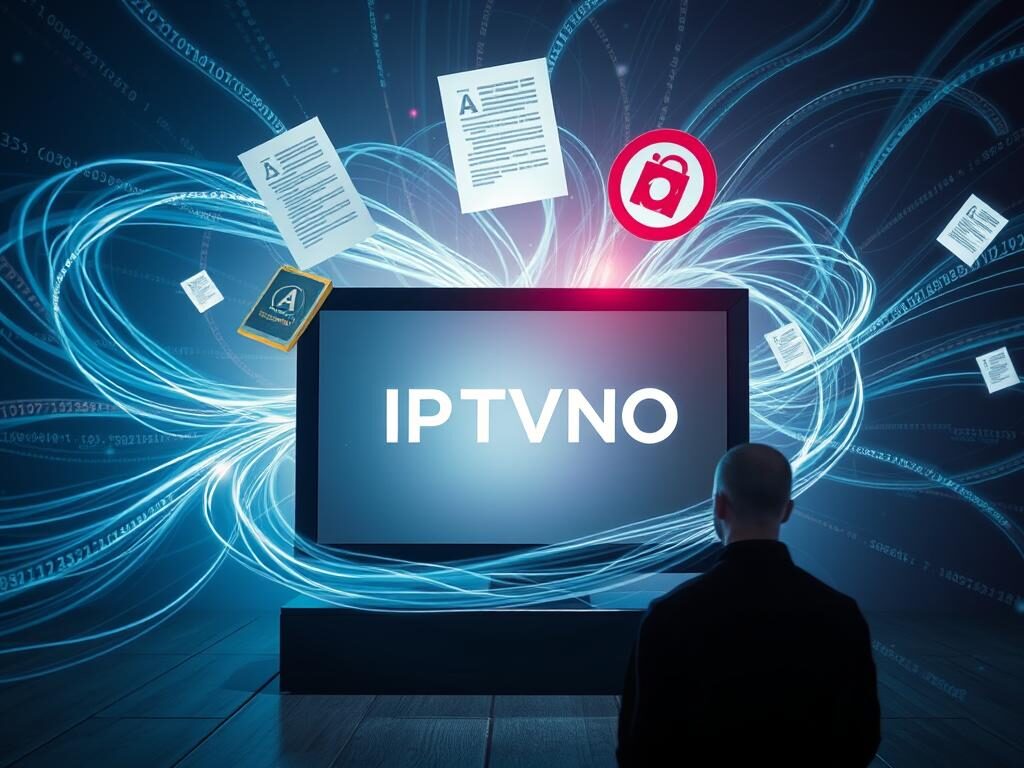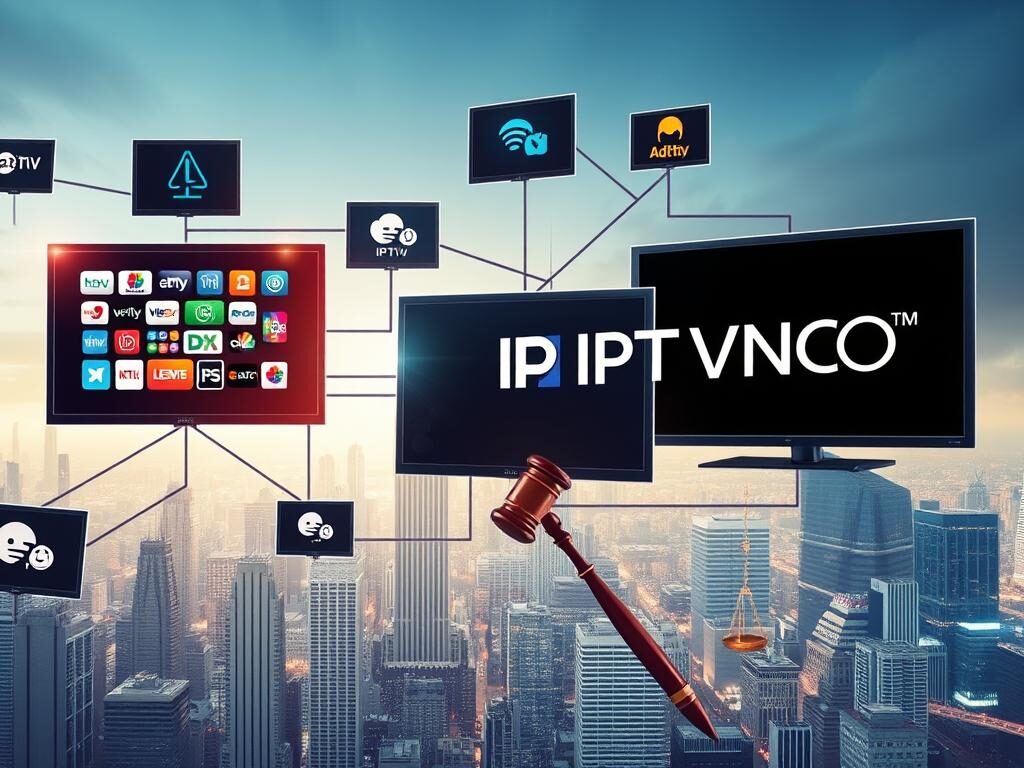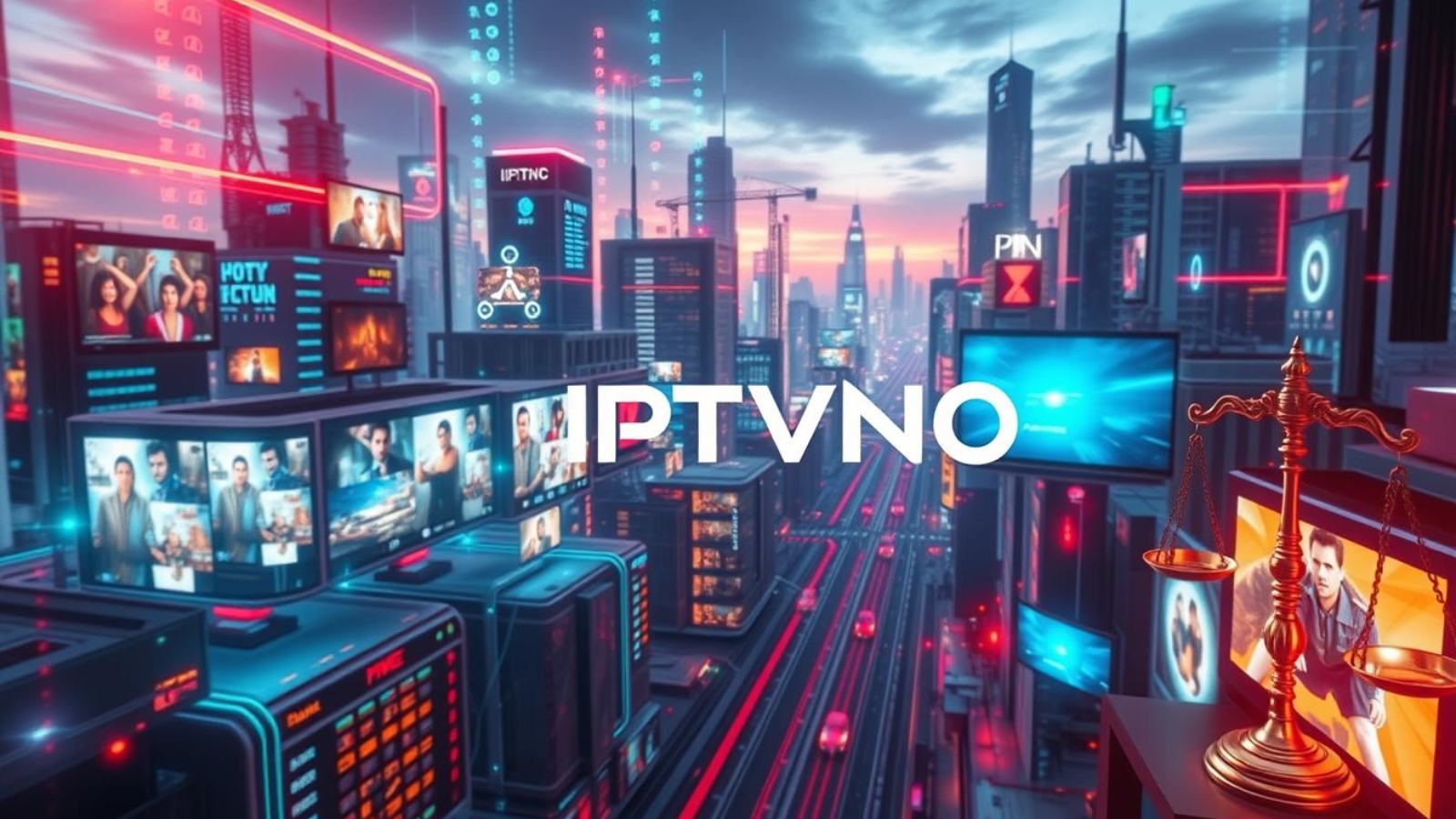Is IPTV Legal? Understanding Streaming Services
In today’s digital world, many wonder if IPTV (Internet Protocol Television) is legal. More people are using online streaming to watch their favorite shows and movies. It’s important to know the legal side of these services.
IPTV is a fast-growing part of the streaming world. It lets users watch a lot of content online, often for less money than cable or satellite TV. But, the law around IPTV can be tricky, changing from place to place.
In this article, we’ll look closely at IPTV’s legal side. We’ll talk about the different kinds of IPTV, what makes up an IPTV system, and how it’s different from cable TV. We’ll also look at the legal issues with licensed and unlicensed IPTV, and what users need to know about copyright.
By the end of this, you’ll know more about IPTV’s legal status. This will help you choose streaming services wisely and enjoy your favorite shows legally.
Key Takeaways
- IPTV is a rapidly growing sector in the streaming industry, offering an alternative to traditional cable or satellite television.
- The legality of IPTV services can vary across different regions and service providers.
- Understanding the legal landscape surrounding IPTV is crucial for consumers to make informed decisions about their streaming preferences.
- This article will explore the different types of IPTV technology, the core components of IPTV systems, and the key distinctions between IPTV and traditional cable services.
- The article will also examine the current legal landscape, analyze the implications of licensed and unlicensed IPTV providers, and discuss the copyright considerations for users.
What Is IPTV and How Does It Work
Internet Protocol Television (IPTV) is changing how we watch TV. It uses the internet to send TV shows directly to our devices. This means we can watch what we want, when we want, anywhere.
Different Types of IPTV Technology
IPTV comes in many forms, each with its own special features. Here are a few:
- Live IPTV: It streams TV channels live, just like cable or satellite.
- Video-on-Demand (VoD) IPTV: You can watch movies and TV shows whenever you want.
- Time-Shifted IPTV: You can pause, rewind, or record live TV, giving you more control.
Core Components of IPTV Systems
At the heart of IPTV are a few key parts. They work together to make watching TV smooth and easy. These parts are:
- Content Providers: These are the places where TV and video come from, like networks and streaming sites.
- IPTV Servers: These are the systems that send the content to viewers, making sure it streams well.
- Viewer Devices: This is the stuff we use to watch IPTV, like smart TVs and phones.
IPTV vs. Traditional Cable Services
IPTV and traditional cable TV are different in many ways. IPTV is more flexible and lets you watch what you want when you want. It’s also often cheaper and keeps up with new tech better.
| Feature | IPTV | Traditional Cable |
|---|---|---|
| Content Delivery | Internet-based | Cable network-based |
| Viewing Flexibility | On-demand, time-shifted | Live, limited on-demand |
| Personalization | Highly customizable | Limited customization |
| Pricing | Often more competitive | Can be more expensive |
The Current Legal Landscape of IPTV Services
The legal status of IPTV services is complex and changing. Worldwide, regulators and law enforcement face the challenge of iptv piracy. At the same time, legal iptv providers aim to operate legally, dealing with copyright and licensing.
In many places, laws about IPTV are still being made. Policymakers try to balance innovation with protecting intellectual property. This has led to different rules in different places, with some being stricter than others.
Despite this, legal iptv providers are making progress. They work hard to offer legal services. They get the necessary licenses and partner with traditional media to deliver quality content.
The fight against iptv piracy has seen successes. Law enforcement has shut down many unauthorized services. But, these illegal operations keep coming back, making it hard for regulators.
The IPTV market is growing, and clear rules are needed. Rules should protect everyone involved. It’s important for the industry, policymakers, and legal experts to work together for the legal iptv ecosystem to grow.
| Jurisdiction | Legal Status of IPTV | Key Regulations |
|---|---|---|
| United States | Partially regulated, with ongoing efforts to address iptv piracy | Digital Millennium Copyright Act (DMCA), Federal Communications Commission (FCC) regulations |
| European Union | Varied approaches, with some countries taking a more proactive stance against iptv piracy | EU Copyright Directive, national laws and regulations |
| United Kingdom | Stricter regulations, with increased crackdown on iptv piracy | Copyright, Designs and Patents Act, Serious Organised Crime Agency (SOCA) enforcement |
| Canada | Relatively lenient approach, with ongoing efforts to address iptv piracy | Copyright Act, CRTC regulations |
Is IPTV Legal? Breaking Down the Facts
The legality of IPTV (Internet Protocol Television) is often unclear. It’s important to know the difference between legal and illegal IPTV providers. Some services follow the law, while others may break copyright laws, risking legal trouble for users.
Licensed vs. Unlicensed IPTV Providers
Licensed IPTV providers have the right to stream content legally. They offer many channels, movies, and more, following iptv subscription laws. Unlicensed providers, however, often steal content without permission.
Copyright Implications for Users
Using unlicensed IPTV can lead to iptv copyright issues for users. Accessing unauthorized streams can be seen as copyright infringement. This can lead to legal problems.
Legal Consequences of Unauthorized Streaming
Penalties for using unlicensed IPTV vary by place. They can include fines and even criminal charges. Authorities are getting tougher on iptv copyright issues and iptv subscription laws. It’s key for users to know the legal risks of their IPTV choices.
Understanding IPTV’s legal side is vital for both providers and users. Knowing the difference between legal and illegal services, and the risks, helps users make smart choices. This way, they can enjoy IPTV safely and legally.
Understanding IPTV Regulations Worldwide
The rules for IPTV services differ a lot around the world. Some places have clear rules for these services, while others are still figuring things out. It’s important for both IPTV providers and users to know the laws to use these services legally.
Diverse Approaches to IPTV Regulation
Every country has its own way of handling IPTV rules. Some have strict guidelines and need licenses, while others are less clear. How well these rules are followed also varies, with some places cracking down hard and others not so much.
Challenges in Establishing Global Standards
It’s hard to make one set of rules for IPTV worldwide because of many differences. Laws about copyright, how content is shared, and technology vary a lot. To fix this, everyone involved needs to work together to make rules that work for everyone.
| Country | IPTV Regulation Status | Key Considerations |
|---|---|---|
| United States | Relatively well-defined, with licensing requirements and content distribution regulations | Ongoing debates around net neutrality and the enforcement of copyright laws |
| European Union | Diverse regulations across member states, with efforts to harmonize digital media policies | Balancing consumer rights, content licensing, and cross-border accessibility |
| China | Strict government control and licensing requirements for IPTV providers | Censorship and content restrictions are a significant concern |
As IPTV grows, we need better, worldwide rules. It’s up to lawmakers, industry leaders, and consumer groups to tackle these issues. They must ensure IPTV services are safe, legal, and offer great content.
How to Identify Legal IPTV Service Providers
Streaming services are always changing, making it hard to know what’s legal. But, with the right info, you can choose safe IPTV providers. We’ll look at what makes a service legal and what to avoid.
Key Features of Legitimate Services
Good IPTV services are open and follow the law. Here’s what to look for:
- Clear terms of service that show their legal duties and your rights.
- A wide range of channels with the right to show content from big names.
- Safe ways to pay, like credit cards or PayPal, to keep your info safe.
- Prices that are clear and don’t change without warning.
- Helpful customer support that answers quickly.
Red Flags to Watch Out For
Some signs show a service might not be legal. Watch out for these:
- Prices that are way too low.
- No clear contact info or address.
- Unusual payment methods, like certain cryptocurrencies.
- Too many channels with content from big networks.
- Shady answers when asked about legal issues.
Stay alert and remember these tips to find legal IPTV services. This way, you can enjoy streaming without worry.
The Role of Copyright Laws in IPTV Broadcasting
Copyright laws are key in the IPTV world. They help decide if streaming services are legal and work well. iptv copyright issues and online streaming legality are central to this complex field.
IPTV providers must deal with many licensing agreements and rights to content. Not getting the right licenses can cause legal troubles and big fines for both providers and users.
Getting the rights to show copyrighted content is a big challenge for IPTV providers. TV networks, movie studios, and creators are very protective of their work. This makes it hard for IPTV to get the needed permissions to stream their content.
This legal challenge has led to many unlicensed or “pirate” IPTV services. These services often operate in a gray area, posing a big risk to users. The success of IPTV services depends on their ability to deal with copyright laws and get the right licenses.
“The protection of copyrighted content is a critical issue in the IPTV industry, as it directly impacts the legality and sustainability of streaming services.”
As more people want on-demand and personalized content, copyright laws in IPTV will become even more important. Providers must be careful and work with content owners to stay legal. This protects their business and their customers.

Best Practices for Safe IPTV Usage
The use of IPTV regulations and IPTV subscription laws is becoming more common. It’s important for users to keep their digital privacy and safety in mind. By following best practices, you can enjoy your favorite shows without worrying about risks.
Protecting Your Digital Privacy
To keep your personal info safe, follow these steps:
- Use a reputable virtual private network (VPN) to encrypt your internet traffic and hide your IP address.
- Enable two-factor authentication on your IPTV service account to add an extra layer of security.
- Avoid accessing IPTV platforms through unsecured public Wi-Fi networks.
- Regularly update your device’s operating system and security software to address potential vulnerabilities.
Choosing Reliable Service Providers
When picking an IPTV service, make sure it’s legitimate and follows the law. Look for these signs of a trustworthy IPTV service:
| Feature | Legitimate IPTV Service | Unlawful IPTV Service |
|---|---|---|
| Legal Licensing | Holds necessary content distribution rights and permissions | Lacks proper licensing or operates in a legal gray area |
| Pricing Structure | Offers transparent and reasonably priced subscription plans | Unusually low or suspiciously cheap pricing |
| Customer Support | Provides reliable and responsive customer service | Limited or unresponsive customer support |
By following these tips, you can enjoy your favorite shows while keeping your digital security safe. This supports the legal streaming world.
The Future of Legal IPTV Services
The world of internet TV is changing fast. Experts say the future of legal IPTV looks bright. They believe new tech and rules will shape how IPTV works.
Cloud-based IPTV platforms are becoming more popular. They offer a flexible and secure way to stream content. This makes it easier for providers to follow the law and meet content agreements.
Regulators are working to make the rules clearer for internet tv legality and iptv services laws. This will help everyone know what’s allowed. It will make the legal IPTV world more open and reliable.
There’s also talk about using new tech to protect content. Things like DRM and blockchain can help keep content safe. This makes it harder for illegal services to operate and cuts down on copyright issues.
Legal IPTV providers will have to change how they do business. They might team up with old media companies or invest in more content. They’ll also focus on teaching customers about their services and being open.
The future of legal IPTV is exciting. With new tech, clear rules, and teamwork, it could become a better place for everyone. This includes both the companies offering services and the people using them.

“The key to the future of legal IPTV services lies in the industry’s ability to balance innovation with compliance, ensuring a seamless and secure streaming experience for users.”
Conclusion
The legality of IPTV services is complex and always changing. Some IPTV providers follow the law, while others don’t. It’s important for users to know the difference to avoid legal trouble.
Whether is iptv legal depends on many factors. It’s about the IPTV service, its content deals, and where you are. Knowing about iptv legality and local laws is key to watching IPTV safely and legally.
The future of legal IPTV is bright, thanks to new tech and updated laws. By staying alert, viewers can enjoy IPTV without breaking the law. A mix of new ideas and following rules will help IPTV grow in the right way.


Add a Comment